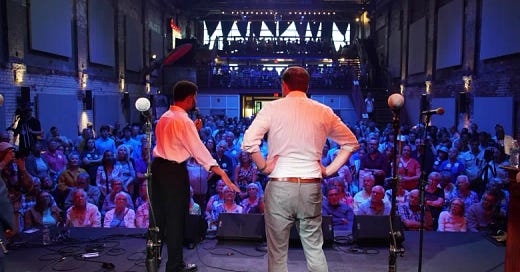The Public Wants a Reckoning, Not Another Performance
The Real Crisis Isn’t Anger. It’s Meaning.
Have you felt it, too? The sense that something essential is missing — even when the Democrats seem to be "fighting" in exactly the way the political consulting class has long insisted they must. The sense that even when Cory Booker stands for 25 hours delivering a marathon speech, when Jasmine Crockett goes viral for grilling a Trump official, or when …
Keep reading with a 7-day free trial
Subscribe to Evelyn Quartz to keep reading this post and get 7 days of free access to the full post archives.


